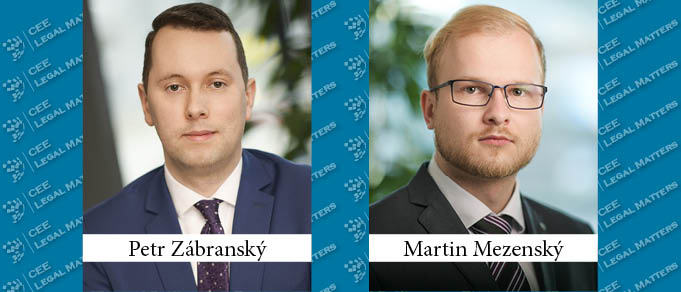The Constitutional Court of the Czech Republic published its finding Ref. No. PL ÚS 25/19 that rejects the proposal of the Supreme Administrative Court to repeal Section 80 par. 1 and 2 of the Rules of Administrative Court Procedure (RACP). The Court declared that the existence of a one-year limit for the filing of an action against the inaction of an administrative body is not itself contrary to the domestic constitutional order. Concurrently, another exchange of arguments has taken place in Joštova Street. Petr Zábranský and Martin Mezenský comment on the latest findings of the Constitutional Court.
The Supreme Administrative Court (SAC), in reaction to developments in a case in the course of which a cassation complaint was filed, put forward a proposal to the Constitutional Court to repeal a provision on a deadline for submitting an action against the inaction of an administrative body. To support this proposal, the SAC reasoned that after the expiry of the deadline to no effect “individuals will be completely excluded from access to judicial protection not only regarding the issue of inaction, but also regarding decisions on the merits,” which would “shift the liability for supervising the due process of the case from the public authority to the individual.” According to the SAC, it is primarily the “legal security of administrative bodies that their (in)action cannot be corrected by the court” that should be strengthened.
The plenum of the Constitutional Court did not agree with the SAC’s concerns and considered the proposal unreasonable. The Constitutional Court pointed out that Section 80 of RACP does not deny judicial protection from the inaction of administrative bodies, it only defines the conditions for obtaining protection. The administrative body’s obligation to make decisions does not itself change after expiry to no effect. The Constitutional Court also considers the time limit to be long enough for the party to administrative proceedings to acquaint itself with the fact that an administrative body is inactive and to undertake the steps needed to successfully bring an administrative action against inaction. The practice of the Constitutional Court also shows that a failure to act within the prescribed time is very rare.
One cannot help but notice in the text of the finding a couple of pointed remarks about the SAC’s proposal that go beyond the usual framework of judicial dialogue and that open up another round of argumentation between the courthouses on Brno’s Joštova Street. We think that these remarks can be read from a pedagogical (and highly positivist) interpretation of the meaning and purpose of time limits, as support of the defence against entropy in the process of exercising the rights of individuals, as a comparison of the SAC’s argument about the shift in responsibility for supervising the due progress of the administrative proceedings to a party to the proceedings, to the shift in responsibility for supervising that fundamental rights and freedoms are respected from a public authority to an individual by setting a time limit for filing a constitutional complaint, or as clear amazement at the SAC not having noticed the apparent indefiniteness, absurdity and unconstitutionality of Section 80 RACP for almost twenty years.
The finding also includes two dissenting positions that put forward very relevant remarks about the plenum’s decision. The dissenting positions point out that the plenum did not deal with the crux of the SAC’s argument – that the discussed time limit provides legal certainty only to the administrative body, and not to the parties. Neither did the plenum deal with the harshness of Section 80 par. 2 RACP, which does not pardon the failure to file an action against inaction within the prescribed time limit. In our view, the dissenting judges Šimáčková and Jirsa rightly point out that with respect to the time limit, “in a democratic constitutional state, we cannot reconcile ourselves to the fact that the longer injustice prevails, the less protection is afforded to the individual concerned.”
It is thus possible to agree with the conclusions of the dissenting judge David that finding PL. ÚS 25/19 presents a highly correct positive-law analysis of Section 80 of the RACP and proves that preserving this provision is essential. Nevertheless, it does not resolve the stated issue of evident imbalance between an administrative body’s option to remain inactive long enough and an individual’s option to protect itself quickly enough from long-term inaction (which is sometimes very hard to foresee).
That is also why we consider it a pity that the plenum did not discuss limiting the harshness of Section 80 par. 2 of the RACP in more detail. If the genuinely excusable expiry of the time limit is the subject matter of a couple of individual cases, introducing an option to pardon a failure to act within the prescribed time limit would be a suitable compromise that would comply with the constitution.
By Petr Zabransky, Senior Associate, and Martin Mezensky, Junior Lawyer, Rowan Legal



